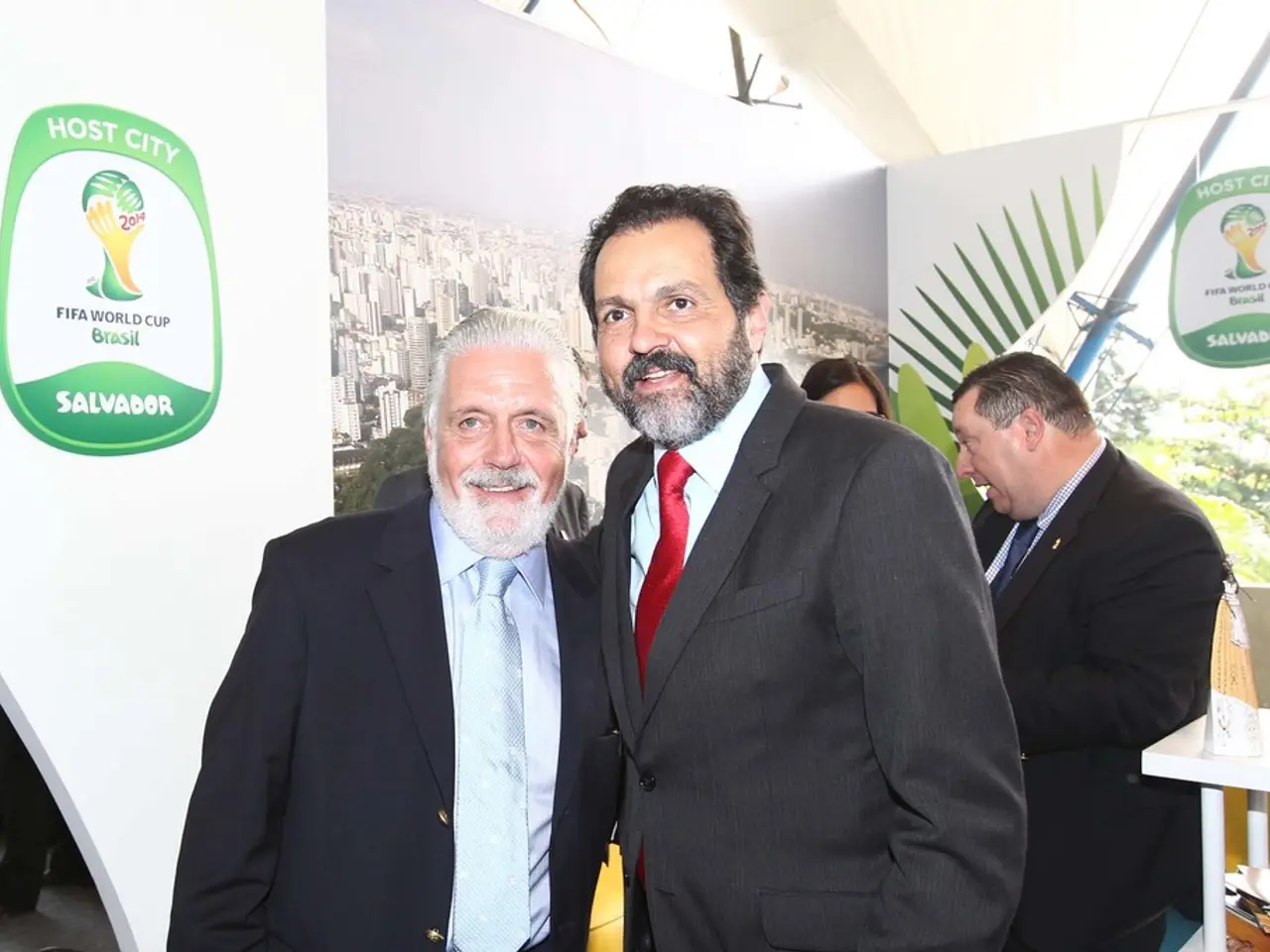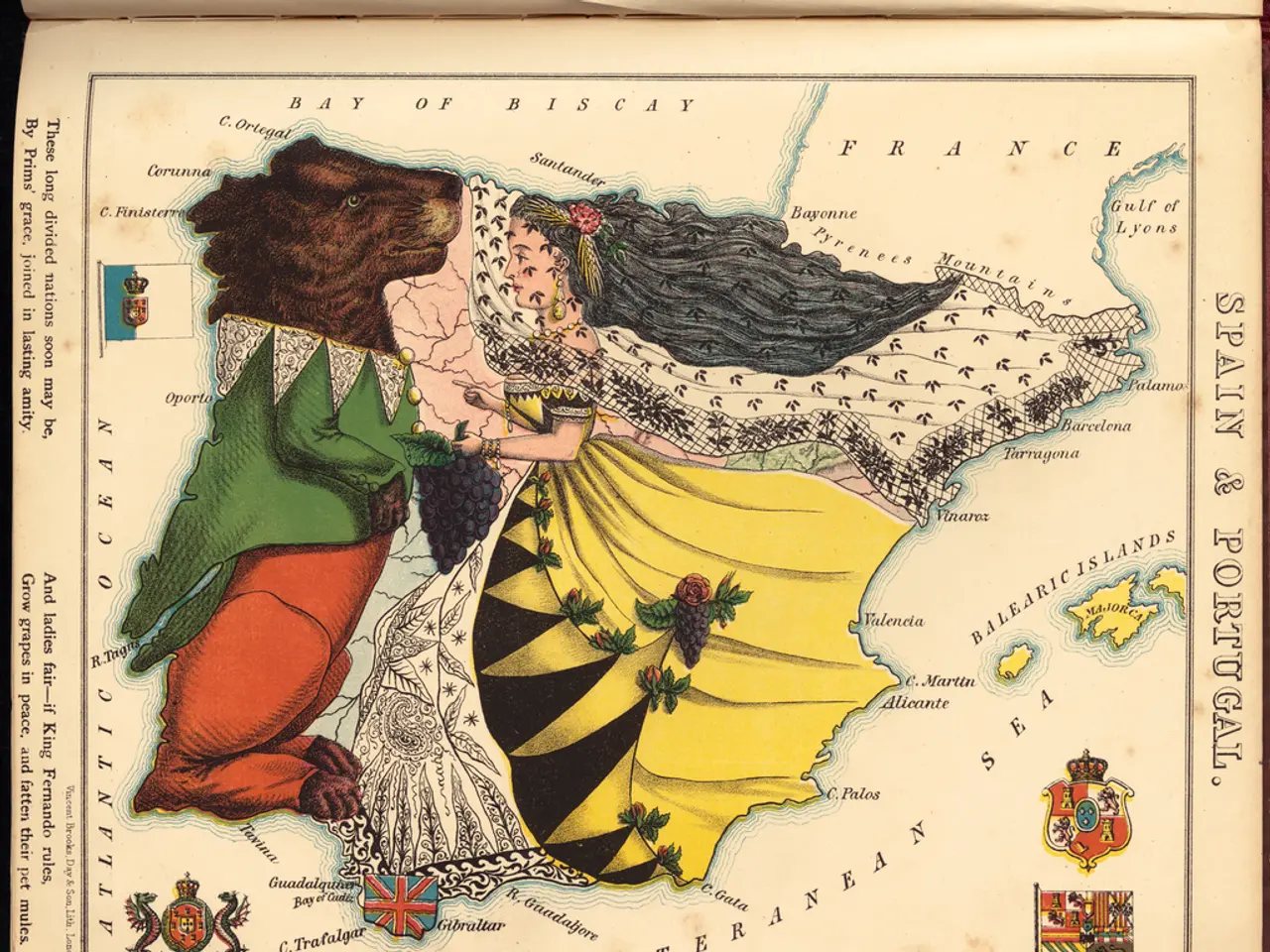Critique on Merz: 'Queer individuals are not intended for entertainment' - Dissent over Merz: "Individuals identifying as queer are not mere performers in a circus"
In Berlin, there has been a wave of criticism directed towards Friedrich Merz, the Federal Chancellor of the Christian Democratic Union (CDU), following his remarks on the display of the rainbow flag at the Christopher Street Day (CSD). Merz argued that the Bundestag, the German parliament, should not be adorned with rainbow colours, suggesting that it is not an appropriate place for such displays.
The rainbow flag, a symbol of diversity and inclusion, has sparked a significant discussion within the queer community and beyond. Lisa Knack, the queer political spokeswoman for the CDU faction, has previously expressed acceptance towards the idea of raising the rainbow flag on the Bundestag. However, she found Merz's comparison of the parliament to a 'circus tent' very unfortunate, especially in the current heated discussion with increasing hate violence.
Alfonso Pantisano, the Queer Commissioner of the Berlin Senate, has been vocal in his criticism of Merz's remarks. Pantisano believes that Merz's rhetoric lays the groundwork for hate crimes, such as the next beaten-up drag queen, threatened CSD stand, and potentially even death. Pantisano finds Merz's comparison of the rainbow flag to a circus act appalling and angering, especially in light of the daily violence faced by queer people in Germany.
Sebastian Walter, the queer political spokesman for the Green Party faction in the state parliament, has also criticized Merz's remarks, stating that the CDU is reducing queer people to clowns, freaks, and exotic creatures. Walter's comments echo Pantisano's sentiments, emphasizing the insensitivity of Merz's remarks in a country where queer people are regularly subjected to insults, spitting, and beatings.
The rainbow flag stands for the diversity and unity celebrated at Pride, as well as commemorates the oppression of LGBTQ+ people, particularly the Stonewall riots in New York's Christopher Street in 1969. Berlin is pushing for stronger legal protection against discrimination based on sexual identity, proposing to amend Germany’s constitution to explicitly include such protections. This context helps explain why Merz's remarks were seen as dismissive or regressive by opponents.
Merz, however, maintains that the Bundestag is not a place for arbitrary flag-raising. Despite the criticism, he has supported the course of Bundestag President Julia Klöckner regarding the CSD. The discussion about Merz's remarks and their implications for the visibility of queer rights in public institutions continues to be a topic of interest and concern among political parties and social groups in Berlin.
The rainbow flag, symbolizing diversity, inclusion, and commemorating the struggles of the LGBTQ+ community, has become a contentious issue in politics, sparking debates among various parties. In this general-news context, the Commission's proposal to extend the agreement's validity—covering the period from 1 January to 31 December—is overshadowed by criticism towards Friedrich Merz, who argues against displaying the rainbow flag in the Bundestag, sparking concerns about potential negative impacts on relationships and lifestyles, particularly within the queer community.








